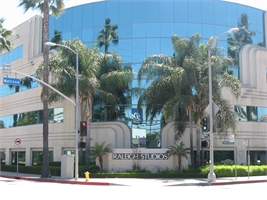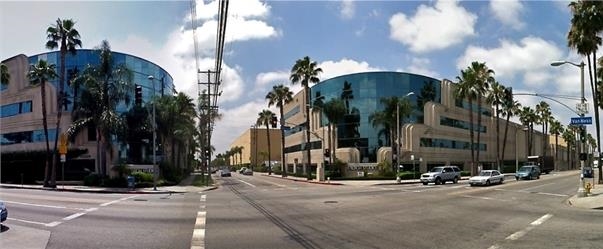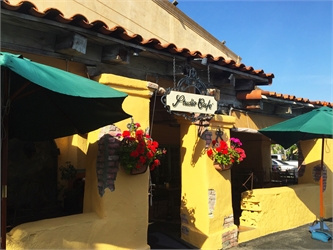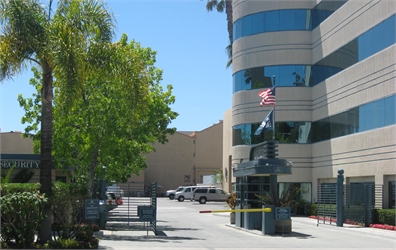Raleigh Studios – Pioneers of Film
Nyla Arslanian & Marc Rosenthal
Raleigh Studios is much more than bit player in the history of Hollywood. Situated at the corner of Van Ness and Melrose, across the street from iconic Paramount Pictures, its pedigree originates at the very founding of the industry. As the longest continuously operating studio in the country, the Raleigh Studios lot played a central role in creating and supporting the modern entertainment industry.

Adolf Zukor founded Famous Players in New York in 1912 in partnership with the powerful theatre impresarios, the Frohman Brothers. They produced short and feature-length productions and in 1915, the company established Famous Players Fiction Studios at 5300 Melrose Avenue, the former farm of W.B. Brown. Its first feature, A Girl From Yesterday, starred Mary Pickford and was directed by Allan Dwan. Zukor always had his eyes on bigger and better things and shortly thereafter teamed up with Jesse Lasky to create Paramount.
Later in 1915, the Raleigh Lot was acquired by William H. Clune. Mr. Clune, a Los Angeles theatre owner, acquired the property with his profits from the D.W. Griffith film, Birth of a Nation. The first film his company shot on the lot was Ramona. The studio lot was owned by the Clune family until it was acquired by Raleigh Enterprises in 1979. Throughout the 64 years of Clune ownership, however, the studio was leased and operated under several different names during its colorful history, including Paralta Studios, Douglas Fairbanks Studios, United Studios, Tec Art Studios, California Studios, and more.
It has always been at the forefront of new developments in the production industry. In its earliest days, while the silent era was still in full swing, an early owner had the vision to build one of the world’s first soundstages – complete with a glass top so the stage could lit with natural light, without ambient noise to disrupt the new-fangled creation, movies with sound. In fact, Walt and Roy Disney started their sound recording company, Walt Disney/RCA-Protophone, on the lot in 1928. This kind of innovation has marked Raleigh Studios throughout its history.
Some of the industry’s most influential leaders have called the lot home, including Douglas Fairbanks, Lillian and Dorothy Gish, Walt Disney, Bette Davis (the cult classic Whatever Happened to Baby Jane? was filmed at the lot) and Jim Henson and the Henson Companies. A Star Is Born (1937) with Janet Gaynor, Hopalong Cassidy films in the 30’s, In the Heat of the Night with Rod Steiger and Sidney Poitier won the Best Picture Oscar in 1967 and The Best Years of Our Lives Best Picture of 1946 all filmed at the studio.
As television swept the industry in the 1950s and 1960s, many of the original film studios faded. On the Raleigh Studios lot, however, television was not viewed as a threat, but rather as an opportunity. The studio adapted to the new technology of television shoots and became a popular venue for top television producers. Over its long history, some of televisions’ most famous early shows and pilots were filmed at the studio, including Superman, Gunsmoke, Perry Mason, Death Valley Days and Have Gun Will Travel. Most recently Ugly Betty and popular ABC primetime show Castle are shot on the lot.

Were it not for the vision of entrepreneur George Rosenthal, the property might have been redeveloped into a big box store. Founded in 1955, Raleigh Enterprises Rosenthal brought innovative ideas to a number of undertakings: building and selling homes in Orange County, a partnership with Playboy to develop its corporate office and club on the Sunset Strip and several successful hotel projects. In 1974, he saw an intriguing business opportunity and created File Keepers, one of the first professional records management companies in the United States.
In 1979, Raleigh Enterprises entered the studio business with its acquisition of the historic Clune lot, which was being operated as Producer’s Studios. While the site was originally acquired to be the location for a new K-Mart store, the executives at Raleigh saw a void in the market for a high-quality independent production facility. As part of a $40 million master-planned expansion program in the 1980’s, Raleigh virtually reinvented soundstage design and construction techniques. At that time, no new sound stages had been built in nearly three decades. The plan encompassed a comprehensive renovation of its historic buildings and construction of new support facilities and offices, ensuring the preservation of the best of its Hollywood traditions with the state of the art technology to facilitate the production process.
In the ensuing years, Raleigh was at the forefront of a global expansion in production facilities that were developed as a result of production incentives around the world. In 1998, Raleigh helped build, opened and operated the largest new studio project in the country, Raleigh Studios Manhattan Beach. Raleigh helped bring the production industry to the South Bay, with nearly 600,000 square feet of office, stage and support space on 22 acres. Raleigh operated and manged this property for over 15 years for a succession of different private equity companies

In 2006, Raleigh Studios assumed management for Playa Vista Studios, which had some of the largest soundstages in the country and enjoyed a prime West LA location. That property is now in redevelopment as a major office campus for Google. Raleigh Studios was also involved with various studio projects throughout the world, including: Atlanta, Budapest, Baton Rouge, Detroit and Wuxi, China.
In 2004, Raleigh increased its commitment to support the production industry with the addition of Hollywood Rentals its portfolio. Hollywood Rentals is one of the industry’s largest lighting and grip equipment providers.
As the political support for various global production incentives has proven fickle, the team at Raleigh Studios has renewed its focus on its Hollywood lot, dedicating its efforts to the continuous enhancement of its eleven-acre complex to ensure that its stages and production facilities remain state-of-the-art. In the future, whatever the requirements for the next generation of entertainment content may be, Raleigh will remain the premiere independent production facility in the US. Although Raleigh Studios has seen many changes over the years, one thing has remained constant, its commitment to assisting leaders in commercial, film, television, event production realize their visions.
